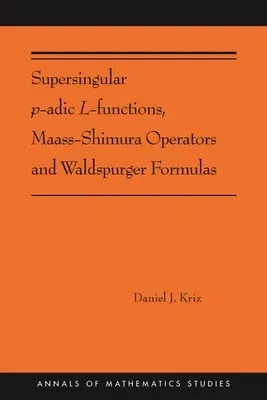A groundbreaking contribution to number theory that unifies classical
and modern results
This book develops a new theory of p-adic modular forms on modular
curves, extending Katz's classical theory to the supersingular locus.
The main novelty is to move to infinite level and extend coefficients to
period sheaves coming from relative p-adic Hodge theory. This makes it
possible to trivialize the Hodge bundle on the infinite-level modular
curve by a "canonical differential" that restricts to the Katz canonical
differential on the ordinary Igusa tower. Daniel Kriz defines
generalized p-adic modular forms as sections of relative period
sheaves transforming under the Galois group of the modular curve by
weight characters. He introduces the fundamental de Rham period,
measuring the position of the Hodge filtration in relative de Rham
cohomology. This period can be viewed as a counterpart to Scholze's
Hodge-Tate period, and the two periods satisfy a Legendre-type relation.
Using these periods, Kriz constructs splittings of the Hodge filtration
on the infinite-level modular curve, defining p-adic Maass-Shimura
operators that act on generalized p-adic modular forms as
weight-raising operators. Through analysis of the p-adic properties of
these Maass-Shimura operators, he constructs new p-adic L-functions
interpolating central critical Rankin-Selberg L-values, giving
analogues of the p-adic L-functions of Katz,
Bertolini-Darmon-Prasanna, and Liu-Zhang-Zhang for imaginary quadratic
fields in which p is inert or ramified. These p-adic L-functions
yield new p-adic Waldspurger formulas at special values.

